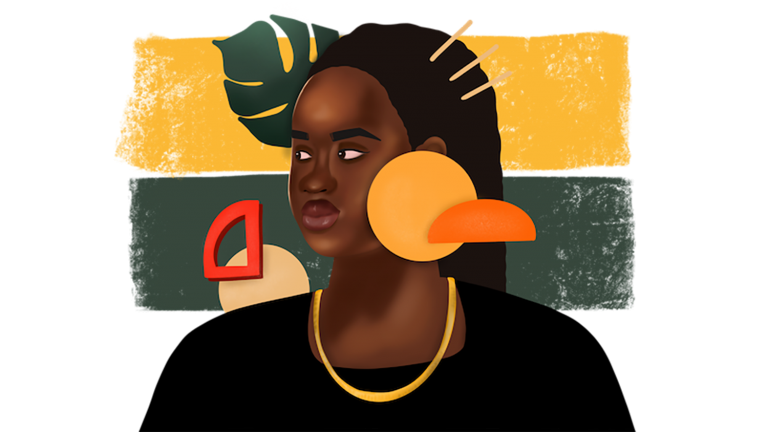Last year, the Electoral Commission of Uganda declared that the January 14, 2021 presidential elections would be “scientific,” meaning that campaigning would be done entirely online. The commission prohibited in-person events in order to align with Covid-19 prevention measures. Politicians had to capitalize on digital and social media to engage with voters.
As a data and digital rights researcher at Pollicy, a feminist civic tech organization that researches gendered online violence in African countries and provides digital skills training for African women in politics, we thought this election would be a great opportunity to monitor social media content and analyze how online violence against women in politics manifested on the Ugandan internet. What we found was unexpected: Ugandan women politicians use social media far less than their male counterparts, which could be related to the abuse that women experience across platforms. Women candidates were almost entirely absent from Twitter.
Pollicy monitored 202 Twitter and Facebook accounts (101 men and 101 women) belonging to politicians and high-profile political figures in Uganda six weeks before the election and ending two weeks later. We then analyzed the scraped data and used sentiment analysis to understand the attitudes expressed towards the candidates.
Through this analysis, we found that women in Ugandan politics experience online violence in the forms of trolling, body shaming, sexualized and gendered insults, and gendered disinformation on both Twitter and Facebook. Fifty percent of women in Ugandan politics experienced trolling compared to 41% of men. While both male and female candidates experienced online violence, attacks towards women were rooted in misogyny and were often about their inability to uphold gender norms. On the other hand, attacks against men mostly focused on their inability to perform their leadership roles.
The most startling finding, however, was that Ugandan women politicians barely used Twitter for campaigning, especially in comparison to their male counterparts. While women extensively used Facebook, many of their accounts were set up as personal pages instead of Public Figure pages that politicians typically use to engage large audiences. For a voter to receive updates on campaign or election-related content, they would have to send a friend request. Some accounts remained dormant after elections, while some page owners went on to use them as personal accounts, posting personal updates about business ventures or meetings with friends.
When we were able to identify Twitter accounts belonging to women candidates, the accounts had low post volume, low engagement rates, and limited followings. Of the 76 accounts belonging to nominated women candidates, 39% of them were not used to post any campaign-related information.
While all politicians can be targets of online violence, women are frequently targeted with a gendered lens that capitalizes on societal beliefs of how women should behave. Winnie Kiiza, former opposition leader and member of the Ugandan parliament, has 48,300 followers on Twitter and posts frequently about Uganda’s current affairs. She said other women politicians avoid social media platforms: “When a woman politician gets home, she is expected to focus on her gendered roles as a wife and mother. As she cooks, checks whether the children have done their homework, and performs other caregiving duties, her husband reads the dailies and also uses this time to catch up on social media.”
In addition, Ugandan women in politics have also been punished for the content they post. Stella Nyanzi, a prominent Ugandan activist and candidate for the Kampala MP seat in the 2021 elections, was imprisoned for 18 months on charges of cyber harassment after she called President Yoweri Museveni “a pair of buttocks” in a Facebook post on her personal page.
The use of online violence as a tool against women’s political participation is not unique to Uganda. Across the continent, women politicians experience trolling, image-based abuse (also referred to as non-consensual sharing of intimate images), doxxing, impersonation through parody accounts, and rape and death threats. Similar forms of abuse hinder women leaders in other parts of the world.
In neighboring Rwanda, Diane Rwigara, a presidential candidate for the 2017 elections, experienced gendered disinformation in the form of image-based abuse when unknown actors shared doctored nude images of her online. Her attackers capitalized on the fact that the fake images would tarnish her image as a leader in a conservative society that does not give room for women to express their sexuality. A five-year study conducted by the International Foundation for Electoral Systems found that women politicians, who only constitute a third of Zimbabwe’s parliament, are the targets of over 60% of violent and abusive content directed at political actors.
Ultimately, the goal of all forms of violence against women is to pass a message to women that they do not belong in politics. Kiiza echoes this sentiment: “Women do not want to join politics because of the associated violence, and they refrain from using online spaces when they realize that there’s violence online too.”
As more women are encouraged to use social media, it is imperative that we come up with solutions to keep them safer online. Uganda’s case is a clear example that equipping women in public life with digital skills is not enough. There’s also an urgent need to equip women with ways to deal with the violence they experience in digital spaces.
One way to do this would be to improve reporting mechanisms and give women in politics more control over the kind of comments that can be directed at them. In the long run, the onus should not be on women to deal with online violence. Technology companies need to take the lead. A great start would be to include local slurs directed at African women politicians in their hate speech lexicons, so as to make it easier for them to detect harassment in real time.



